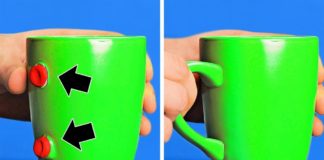
If you are attempting to lose or gain weight it can be tempting to weigh yourself at every opportunity – but how often should you really weigh yourself? And does it give a good indication of your progress?
Why weigh yourself?
It is important to keep an eye on your weight as it can be an indicator of your health. Gaining weight can be potentially devastating to your health if left unchecked as being overweight increases the risk of many diseases including type 2 diabetes, heart disease, and stroke. It can be easy for your weight to creep up over time if you do not regularly check what it is. As we see ourselves each day in the mirror it is hard to pick up small changes in weight gain or weight loss. Others may comment on changes in our weight but you need to be aware of what it is, and how this affects your health. This is where the scales can help, but before you focus solely on your weight you need to be aware of some important points…
What can influence your weight?
Weighing yourself is a general indication of your health, but it is not the only factor you should use. There are a number of reasons why the number you see on the scales may not be entirely reflective of your actual weight and health.
If you have recently started an exercise plan or if you have changed your exercise plan you may find that your weight actually increases when you step on the scales. This is because you may put on muscle from the training. Your hydration status can also influence your weight on the scales. If you are dehydrated you will lose weight, or if you have just had a large drink you will weigh more. If you are a female you may find that your weight fluctuates depending upon where you are in your menstrual cycle. This is because hormones can cause water retention. If you have recently eaten a large meal you may also weigh more.
Another issue with weighing on scales is that although they give you an indication of your entire mass they do not breakdown your body composition. It is possible to be heavy on the scales but healthy if most of this weight is coming from muscle. If most of the weight is coming from fat then this is not healthy. If you get a heavy reading be mindful of your body composition – if you know a lot of this is not due to muscle (as you feel a bit wobbly and don’t work out) you should be worried. If you get a high reading and you work out regularly, do resistance training and are toned you don’t need to be so concerned.
How often?
To ensure you see an accurate measure of weight you should weigh yourself no more than once a week. If you do not want to check each week you should check each fortnight. Always weigh yourself at the same time (ideally after going to the toilet) after waking in the morning so that your measure is consistent. You may like to make a date in your diary or calendar for every Monday morning and record your weight. A great idea is also to track your weight using a graph. Most computer programs make it easy to do this. Having a graph will make it easier for you to see any major changes over time, and can be very motivating. You should also always use the same scales and make sure that they are on a flat and hard surface so your measurement is consistent.
What else can you use in conjunction with your weight?
Given that weight can fluctuate and sometimes not provide you with an accurate measure there are a number of other measures that you can use in conjunction with your scales. A tape measure is a simple tool which can be used to measure your waist, hip, and bust. As you lose or gain weight it can sometimes be hard to tell where it is changing but by measuring your circumference at these points you will be able to see exactly where the changes occur. This is especially helpful if you find that you seem to be putting on muscle but losing fat as your weight may not change too much on the scales but you will be able to see any differences in measurements. You may also like to measure other ‘problem’ areas like your upper arm, calf muscle or thigh.
It is important to beware of your weight but remember that weight is not the only measure of your health; you should track your fitness levels, as well as your energy levels to really keep an eye on your health.






































